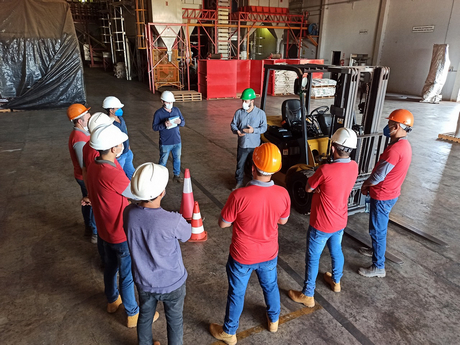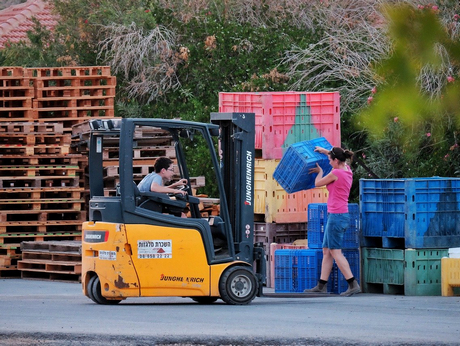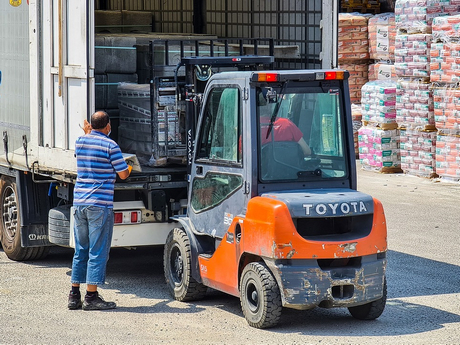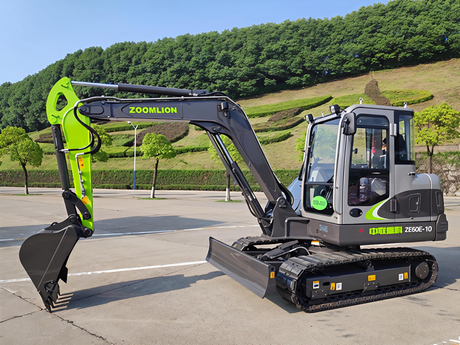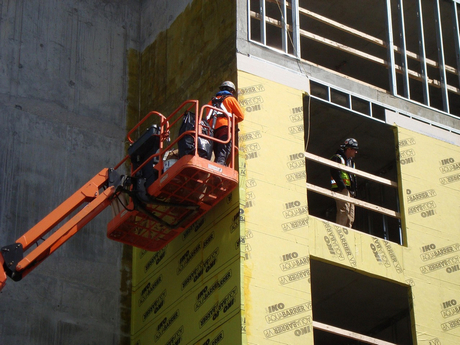|
In the pursuit of high efficiency and safety in the industrial environment, forklift trucks, as key equipment for material handling, are particularly important for their maintenance and upkeep. Recently, a series of innovative forklift maintenance strategies have been launched, aiming at preventing failures, reducing human errors and significantly improving the operational efficiency and safety of forklifts through refined management and technological innovation.
Precise prevention to extend forklift life In order to reduce forklift failures at the source, the new strategy first emphasizes the establishment of a detailed statistical system for parts usage. The system requires customized spare parts service life schedules for each forklift according to the manufacturer's regulations, and real-time recording of key information such as the activation time of each wearing part and the number of hours of forklift operation. By comparing with the standard service life table, timely warning and replacement of parts that have reached the limit of operating hours will ensure that the forklift is always in the best working condition. In addition, thorough inspection before replacement is also an important part of the prevention strategy. By accurately evaluating the degree of wear and internal damage of the old parts and comparing them with the standard data, we decide whether to continue to use them or replace them with new ones, which effectively avoids unnecessary waste and excessive maintenance.
Strictly control man-made fault and improve maintenance quality For forklift failures caused by human factors, the new strategy proposes a series of targeted measures. First of all, strengthen the responsibility and professional training of maintenance personnel to ensure that in the maintenance and repair process, strictly comply with the operating procedures to avoid failures caused by carelessness. For example, through case sharing and hands-on drills, maintenance personnel will be made more aware of the maintenance of key components such as carburetors and antifreeze water plugs, so as to prevent major failures due to minor faults. Meanwhile, the new strategy also points out that supervision and inspection of maintenance quality should be strengthened to ensure that every step of the operation complies with technical standards. For problems such as unauthorized operation and poor assembly quality, strict measures will be taken to correct them and hold the relevant responsible persons accountable.
Innovative anti-leakage technology to ensure forklift safety Oil leakage is one of the common faults of forklift trucks, which not only affects the work efficiency, but also may lead to safety hazards. For this reason, the new strategy introduces a series of innovative anti-leakage technologies. By carefully disposing of the gaskets in the oil pan and valve cover to ensure the sealing performance; tightening the nuts according to the repair specifications to prevent oil leakage due to loosening or over-tightening; and timely replacing the failed oil seals and badly worn parts, such as cylinder liner and piston, to solve the oil leakage problem from the source. In addition, the new strategy also emphasizes the regular inspection and unblocking of key components such as check valves and venting valves, as well as the proper handling of oil pipe joint seals to ensure the unobstructed flow and sealing performance of the entire lubrication system. The launch of this series of new strategies for forklift maintenance not only provides enterprises with more scientific and efficient forklift maintenance programs, but also effectively reduces the forklift failure rate and operating costs. With the in-depth implementation and promotion of these strategies, it is believed that they will bring more significant economic and social benefits to enterprises.
|











